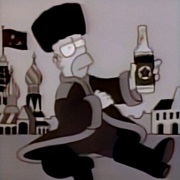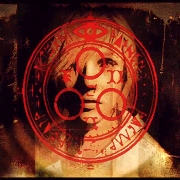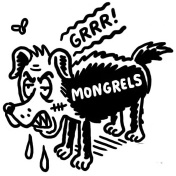|
I’ll be visiting Paris and Amsterdam next year. I’d love some good histories of each city so that as I explore I can be familiar with the major events that occurred in the areas I see. I love knowing the stories behind different buildings, areas, etc
|
|
|
|

|
| # ? May 15, 2024 20:43 |
|
I’m not too worried about flawless historical accuracy, so a more flavorful text will probably be more to my liking, at least as an entry point. Beevor is good so far but he’s making me lol every time he mentions Hitler or Stalin cause it’s like “As Hitler responded to this counterattack, he made a bad decision causes he was a real fuckin’ moron. Just an idiot. What a dumbass”.
|
|
|
|
Rand Brittain posted:Just added the final book of Jonathan Sumption's five-volume Hundred Years War history to my e-reader. Had a buddy recommend that to me but I'm not sure I want to go so deep into a single subject.
|
|
|
|
A few shots in the dark on stuff I'd love A history of Gerald Gardner and Wicca. Maybe something on new religious movements and Neo paganism in general. A history of the PLO I guess it would be hard to find a good extensive unbiased one they just seem to be all over the world during the Cold War. Fighting alongside Idi Amin's army and poo poo. Presumably they were supporting Mandela. All of their international relations are pretty fascinating to me.
|
|
|
|
Punkin Spunkin posted:A history of Gerald Gardner and Wicca. Maybe something on new religious movements and Neo paganism in general. Ronald Hutton's The Triumph of the Moon: A History of Modern Pagan Witchcraft seems like the seminal text. He published it in 1999 but I know he did a revised edition in 2019, though haven't read it.
|
|
|
|
I know basically nothing about the American Civil War, what's a good overview I could check out that covers the timeline, major battles, important figures, social aspects, etc?
|
|
|
|
|
MockingQuantum posted:I know basically nothing about the American Civil War, what's a good overview I could check out that covers the timeline, major battles, important figures, social aspects, etc? Battle Cry of Freedom by James McPherson, hands down.
|
|
|
|
My only regret about Battle Cry of Freedom is that due to the volume's focus on politics and war, the Oxford History of the United States did not have an opportunity to contain a powerful study on the role of Moby-Dick in building a distinct American literary tradition. Unless Howe had some things to say about it in his book that I entirely forgot.
|
|
|
|
Novel wasn't noticed until after the war
|
|
|
|
I guess that makes sense. One wonders where to put those things that take decades to bloom. I can only hope that "Brand Name America" or whatever it turns out to be called is good, and that it will teach me about Sinclair Lewis' career.
FPyat fucked around with this message at 04:35 on Sep 21, 2023 |
|
|
blue squares posted:I’ll be visiting Paris and Amsterdam next year. I’d love some good histories of each city so that as I explore I can be familiar with the major events that occurred in the areas I see. I love knowing the stories behind different buildings, areas, etc The thing I love about Paris is that a wander of the city is really a wander through a lot of western philosophy. Around Jardin des Plantes? You get continental Natural History off every street sign (read Gould to get into the figures of Bouffon, Lammark, and of course Cuvier--most are buried in Pere Lachaise along with Wilde, Proust, Hugo, Balzac, etc.). Anywhere in the 5eme there are scads of works set there. My most recent read of mine set there (in part) was Eco's Foucault's Pendulum. Go into the Pantheon specifically and just absorb the history. Wandering south around Montparnasse? Read Hemingway. Hell, Movable Feast covers the central core well enough, esp the Mouffetard of course. Paris is just a gem and I love it. You can't turn a corner without running into a historical marker. Roman ruins? Check. A Roman bath or coliseum? Check (Cluny Musee and Arene des Lutecs, respectively). Piles of bones, hit the catacombs. Want to see where the Bastille was? They have its walls marked off on the ground where it was. The guillotine was used around there as well, but also Place de la Concorde. Those famous photos from WWII around the Arc de Triomphe.
|
|
|
|
|
Does the actual experiment with Foucault's pendulum play a notable role in the novel itself?
|
|
|
|
Symbolically
|
|
|
|
Thank you for all the recommendations, looks like I need to set up space for a Nazi shelf. edit: in brief (and I'm still only halfway through), Schoenbaum describes his thesis as being that unlike most other settings, the Third Reich, particularly in the period 1933 to 1939, underwent a "double revolution", consisting of an overlapping revolution of ends- a ideological war against bourgeois and industrial society, and, a revolution of means that consisted of new forms of intensifying bourgeois and industrial activity both occurring of and through the Nazi party and its functionaries. This is reflected in the deployment of populism and general nationalist and socialist ideology during the rise of the Nazi party, and the reversal and general subversion of those ideological commitments in all specific forms once Hitler was in power, while still deploying the same rhetorics. It was also his diss book, so it's very dense, very well-researched and cited, and not particularly focused. Discendo Vox fucked around with this message at 08:32 on Sep 21, 2023 |
|
|
|
Chairman Capone posted:Ronald Hutton's The Triumph of the Moon: A History of Modern Pagan Witchcraft seems like the seminal text. He published it in 1999 but I know he did a revised edition in 2019, though haven't read it. I'm finishing this up right now, it's definitely a good book to start with.
|
|
|
|
Minenfeld! posted:Battle Cry of Freedom by James McPherson, hands down. This, and having read both versions I'd recommend the illustrated version if you're a newcomer to the subject matter. It's filled with photographs, maps, illustrations, political cartoons, paintings, etc. that really help add context to the events you'll read about, and it makes everything much easier to visualize and digest.
|
|
|
|
On another note, with regards to both the ACW and the experiences of regular soldiers and what they went through, I am enjoyed reading The War For the Common Soldier, which my wife got me for my birthday. It's mostly about the motivations and emotions of soldiers in the war, with a lot of focus on how soldiers resolved issues with faith, the randomness of war, how cowardice and bravery were seen and how they changed through the scope of the war. This is done mostly through the use of case studies of letters penned (or dictated) by the soldiers themselves, which was quite interesting since the letters by semi-literate soldiers are more conversational, and there is a sharp dichotomy between more middle and lower class soldiers. The book also talks about how white supremacy was viewed, both in the north but especially in the south, and the differences in the views and pragmatism of soldiers on both sides of the conflict. I enjoyed the book but I was hoping that it would also have chapters on the more materialistic parts of life in the armies, like for example what soldiers ate, where they slept, what their routines were like, what songs they sang, etc.
|
|
|
|
Can someone recommend a single volume about Japan? Doesn't have to cover everything, just an interesting survey.
|
|
|
|
Discendo Vox posted:Thank you for all the recommendations, looks like I need to set up space for a Nazi shelf. I have two minor comments that you might find helpful.  Schoenbaum elides the divisions within the SPD that led to its split during the first world war and revolution afterwards. It makes sense that he doesn't spend 700 pages going into that clusterfuck, but it means that it is harder to tell the story of this phenomenon, if you limit the history to the period with the Nazis in control.   Schoenbaum counterpoises his theory of twin revolution to Neumann's account in Behemoth, but he only hints at what his critiques of Neumann are. What makes Schoenbaum's theory better than Frankfurt school theories of class in nazi germany? Or I guess other structural theories. Schoenbaum seems kinda in line with like Barrington Moore Jr. or some other similar post war left-ish modernization theorist. Am I on the mark there? Vivian Darkbloom posted:Can someone recommend a single volume about Japan? Doesn't have to cover everything, just an interesting survey. I enjoyed Japan and the Shackles of the Past by R Taggart Murphy. Maybe it's fatally flawed, I'm not an expert on japanese history, but its a good read. Ex investment banker that you can now find in the pages of the New Left Review. plogo fucked around with this message at 17:29 on Sep 21, 2023 |
|
|
|
Bilirubin posted:The thing I love about Paris is that a wander of the city is really a wander through a lot of western philosophy. Thanks! I'm so excited. I only have two and a half days there before I go to Amsterdam, so I will do my best to make the most of every minute
|
|
|
|
plogo posted:I have two minor comments that you might find helpful. If you DO want to dive into this, you can't go wrong with Schorske, German Social Democracy, 1905–1917: The Development of the Great Schism . That, and and understanding of the November Revolution and the Marxist knock-on revolutions (the Sparticist uprising, the Bavarian Socialist Republic, etc.) does a lot to explain why things played out the way they did with the SPD and KPD in the late 20s and early 30s.
|
|
|
|
plogo posted:Schoenbaum counterpoises his theory of twin revolution to Neumann's account in Behemoth, but he only hints at what his critiques of Neumann are. What makes Schoenbaum's theory better than Frankfurt school theories of class in nazi germany? Or I guess other structural theories. Schoenbaum seems kinda in line with like Barrington Moore Jr. or some other similar post war left-ish modernization theorist. Am I on the mark there? I'm not sufficiently literate in history to speak to your questions- plus I'm only halfway through the book! I'll have to read additional sources like Behemoth to tell. edit: there is some further discussion of Neumann later in the intro: quote:Neumann concluded that the Third Reich was a class society, Emil Lederer that it was classless. Their analyses are among the best we have, but also among the most unreliable. Neither of them was short of information. What was lacking was concepts adequate to interpret it. That provides a bit clearer contrast in terms of what Schoenbaum thinks he's doing; something pretty narrow and specific to the subject and more directly linked to available evidence. This appears reflected in his view of Germany: Jekyll and Hyde, where Schoenbaum likes the analysis and hates the conclusions. From what I've read so far, I think he's taking a different tack from Barrington Moore in that he views the circumstances of Nazi Germany's changes as uniquely internally contradictory and hosed up ( he refers to it as "a mad dog among nations"), but also an anomaly that could occur in the future. So far Schoenbaum's politics aren't very clear either, other than hating the Nazis. Social Origins of Dictatorship and Democracy was published the same year as this book, so it's plausible that it either had a huge influence or zero influence whatsoever. Discendo Vox fucked around with this message at 03:12 on Sep 22, 2023 |
|
|
|
Discendo Vox posted:I'm not sufficiently literate in history to speak to your questions- plus I'm only halfway through the book! I'll have to read additional sources like Behemoth to tell. I'm not particularly literate in this history either- my comments were based on reading the intro then searching the text for neumann and more a provocation than something i expected an answer to. I know behemoth mainly because adam tooze talked about being inspired by it in the wages of destruction. Schoenbaum says [referring to behemoth] "Neither of them was short of information. What was lacking was concepts adequate to interpret it." That is arguably true of behemoth, but as the frankfurt school was very much concerned with class analysis, social revolution, and Nazism they have plenty of concepts to interpret it. You might not agree that "the cultural industry" is an adequate concept to analyze fascism, but I don't think you can deny its influence! Discendo Vox posted:That provides a bit clearer contrast in terms of what Schoenbaum thinks he's doing; something pretty narrow and specific to the subject and more directly linked to available evidence. This appears reflected in his view of Germany: Jekyll and Hyde, where Schoenbaum likes the analysis and hates the conclusions. From what I've read so far, I think he's taking a different tack from Barrington Moore in that he views the circumstances of Nazi Germany's changes as uniquely internally contradictory and hosed up ( he refers to it as "a mad dog among nations"), but also an anomaly that could occur in the future. So far Schoenbaum's politics aren't very clear either, other than hating the Nazis. Yes, you are correct to point out that distinction between Barrington Moore and Schoenbaum. I brought up Moore because the Schoenbaum book seems more american style modernization theory inspired as compared to the marxist flavored social revolution theories and Moore was the first name that came to mind. Ian Kershaw in chapter 7 of The Nazi Dictatorship: Problems and Perspectives describes what I was trying to get at more precisely:  That is schoenbaum's politics.
|
|
|
|
Discendo Vox posted:From what I've read so far, I think he's taking a different tack from Barrington Moore in that he views the circumstances of Nazi Germany's changes as uniquely internally contradictory and hosed up ( he refers to it as "a mad dog among nations"), but also an anomaly that could occur in the future. I can't comment very concretely because it's been forever since I've looked at Schoenbaum, but keep in mind that it was a book published in the mid-60s. This interpretation in particular is something that was extremely common in that time period, and has a near relative in the Sonderweg thesis of how and why Nazism happened in Germany in particular - but it fell out of favor pretty severely in the 80s and 90s. This isn't to say it's an outmoded book or something you should be ignoring entirely, but keep in mind that you're likely to find interpretations that have largely been passed by.
|
|
|
|
Punkin Spunkin posted:
Hannibal Rex posted:Where would you place Götz Aly's Hitler's Beneficiaries among these and the previous recommendations? After reading Aly I'd read this article: https://www.cambridge.org/core/jour...C58391637959F28. Gives a good critique of parts of his book, but Aly is still pretty important and helped re-focus research.
|
|
|
|
Vivian Darkbloom posted:Can someone recommend a single volume about Japan? Doesn't have to cover everything, just an interesting survey. I really like William Wayne Farris' Japan to 1600: A Social and Economic History. It's (as the title betrays) a kinda demographically-centered history as opposed to a political one, going into (relative) depth on the technology, institutions and customs that made up the fabric of society over a sequence of eras he divides the history into. He's one of the foremost scholars on Japan's population history, so that has kind of a central place -- and so he dwells a lot on subjects like disease and immigration. But that also means you get a much more in depth treatment of Japan's interactions with the continent than most histories of Japan give you. It is much more lacking on the political side of stuff, although that's not completely absent. Next to no treatment of battles though as I recall. There's also an iirc pretty good edited volume, Japan Emerging: Premodern History to 1850, e. Karl Friday. I have to admit though going back to what Cyrano said recently (here? I think) about audiobooks being poo poo, I went through it during my short-lived phase of blazing through books via the robot text to speech, so now 4 years later my memories of it are kind of a blur. It's obviously much more comprehensive than Farris' work and will get you a diversity of opinions; my recollection is some of the authors were pretty dry though whereas Farris is imo a pretty good writer. That could be entirely because I was listening to a robot though. I would probably recommend both. In general for Japan though I'd strongly recommend looking for stuff from the late 90s onward. My interest is Korea so my feelings on this are probably sharper than most, but Japanese history traditionally got treated as a much more discrete thing* than it should have, and that's only relatively recently been getting corrected. * Incidentally, this often gets called up because of Japanese racial exceptionalism etc but I read an interesting take recently in Torquil Duthie's Man'yoshu and the Imperial Imagination in Early Japan that Japanese scholarly insularism is actually a postwar correction against Imperial Japan's brand of mutliculturalism. Imperial Japanese scholars were very open to making connections between Japan's history and the continent, just...far too often as an explicit tool for empire building. Postwar scholars were shy about this, and maybe overcorrected. Koramei fucked around with this message at 21:33 on Sep 23, 2023 |
|
|
|
The History Book Thread! looks like I need to set up space for a Nazi shelf Accurate but chilling
|
|
|
|
The Fifties by David Halberstam presents a broad view of the decade in America, with biographical portraits of figures as different as Nixon, Martin Luther King, Kerouac, and Betty Friedan. The cultural history was more interesting to learn about than the political events because they were less well-trodden ground for me. The accounts of the auto industry and the Korean War probably overlap a lot with the author's books on those topics. As for reading about later periods, Rick Perlstein's work sounds like it will serve me well for the sixties and seventies, but I haven't been able to find any books about the American eighties that aren't predominantly political.
|
|
|
|
Yeah, there are a lot of good books on the 60s and 70s. Perlstein's books are potted in their own way, necessarily- heck you can read a whole book on the democratic convention of 1968 like the David Faber one, much less an entire book on 1968. Personally, a lot of my favorite history books in recent years have focused on the 70s, which saw much more attention over the past 20 years, like Jefferson Cowie's Stayin' Alive. Rick perlstein has a nice review essay going through a bunch of them https://www.thenation.com/article/archive/seventies-show/. The 80s is definitely tougher, some good academic books, but nothing that really fits the balance between readable narrative and rigor that come to mind. However, as far as the 90s go, I'd keep an eye on Nelson Lichentenstein's (who took over the project from Judith Stein after she passed away) new book A Fabulous Failure: The Clinton Presidency and the Transformation of American Capitalism.
|
|
|
|
The best book I've read about 1980s America is a bit off the regular historical track: Paul Slansky's The Clothes Have No Emperor from 1989. It's a chronological listing of all the dumb nonsense of the Reagan years, both in politics and in pop culture, and it's the only thing I've ever read that seemed to really communicate what it was like to live through that era. Slansky is a TV comedy writer and the book is more funny than analytic, and the whole thing can be awfully Boomer-brained in places, but it really is the starting point for coming to grips with The Eighties. You can get it used at Amazon for a buck or two (plus shipping), or you can download the free ebook from the author's website. e: Here's the book's entry for February 1982, to give you a taste quote:FEBRUARY 1982 FMguru fucked around with this message at 18:06 on Sep 27, 2023 |
|
|
|
I finished The Whisperers: Private Life in Stalin's Russia by Orlando Figes; it was alternately heartbreaking and oddly edifying, knowing that the people interviewed managed to form stable families and outlive communism. Taught me a great deal about what general bird's-eye surveys would only weakly convey about the human experience of Soviet life. Unfortunately I also have to reckon with the fact that the book's Russian fact-checker apparently found it unprintably flawed, and the whole scandal of Figes' fake Amazon reviews. I would have avoided it if not for having trouble finding other intimate histories of such breadth.
|
|
|
|
plogo posted:Yeah, there are a lot of good books on the 60s and 70s. Perlstein's books are potted in their own way, necessarily- heck you can read a whole book on the democratic convention of 1968 like the David Faber one, much less an entire book on 1968. Personally, a lot of my favorite history books in recent years have focused on the 70s, which saw much more attention over the past 20 years, like Jefferson Cowie's Stayin' Alive. Rick perlstein has a nice review essay going through a bunch of them https://www.thenation.com/article/archive/seventies-show/. oh a new Lichtenstein book, great! he's an amazing historian. will definitively check that out
|
|
|
|
So, my boomer mom has asked for a “book on Central American history” for her birthday (she just got back from Costa Rica) I have been nudging her leftward for 25 years, so so she’s not full boomerchud, but she backslides sometimes. Anybody have a recommendation for something that is a) accessible for a layperson, b) isn’t “America gently caress yeah!” c) isn’t TOO  (I realize that’s a hard sell for any honest read on Central American history). (I realize that’s a hard sell for any honest read on Central American history).I just don’t want her to come away like “oh the socialists really screwed Central America, thank god for United Fruit”, but I’m worried if it’s too harsh of a read, she won’t finish it. navyjack fucked around with this message at 19:35 on Oct 4, 2023 |
|
|
|
When Montezuma Met Cortés is extremely good and built around contradicting the received wisdom about the Aztecs that most people in the US get through cultural osmosis so it's good for people who haven't really looked into the history before. And it's about stuff from before the United Snakes of AmeriKKKa was even invented
|
|
|
|
I liked When Montezuma Met Cortes but I found Fifth Sun: A New History of the Aztecs to be a more enjoyable read.
|
|
|
|
Minenfeld! posted:I haven't read it, but Tony Judt's Postwar is just that. And Mark Mazower's Dark Continent covers the post war decades as well. I enjoyed Postwar, and it was the first time I’d ever heard the phrase "Perfidious Albion" so that was fascinating to explore and learn how continental Europe may not always trust the UK. Kinda connected, it has also been interesting to read about the early WWII US-UK relationship when FDR was all in but how upper levels of the US military establishment had fears of being manipulated into preserving the British colonial empire with thoughts about Germany secondary. Which in hindsight seems absurd but good to learn why they might think that.
|
|
|
|
Hyrax Attack! posted:Kinda connected, it has also been interesting to read about the early WWII US-UK relationship when FDR was all in but how upper levels of the US military establishment had fears of being manipulated into preserving the British colonial empire with thoughts about Germany secondary. Which in hindsight seems absurd but good to learn why they might think that. They were correct about the urge, but wrong about the country (looking at you, Frenchies). DeGaulle basically bullied us into Vietnam single-handedly against the instincts of a lot of the JCS and Ike and Kennedy themselves.
|
|
|
|
I'm reading this book called For the Soul of France because I wanted to know more about the Dreyfus Affair and I thought that's what it was about, it turns out it's not it's mainly a quick overview of post-1848 French political history and then a bit about the Dreyfus Affair. Goddamn. The bit of French 19th century history you get in America is usually just the Revolution and then Napoleon. But the whole 19th century was buck wild in France.
|
|
|
|
Finished Volume 3 of The Americans by Daniel J. Boorstin, The Democratic Experience, nonchronologically charting the social, technological, and economic evolution of the US from 1865 to 1970. I think of it as a more serious counterpart to At Home by Bill Bryson. From cattle herding to Gallup Polls to the invention of Christmas to the moon landing, it feels like every little thing is in there.
|
|
|
|

|
| # ? May 15, 2024 20:43 |
|
Gripweed posted:I'm reading this book called For the Soul of France because I wanted to know more about the Dreyfus Affair and I thought that's what it was about, it turns out it's not it's mainly a quick overview of post-1848 French political history and then a bit about the Dreyfus Affair. Napoleon the 3rd has one of the wildest rides in history.
|
|
|







































